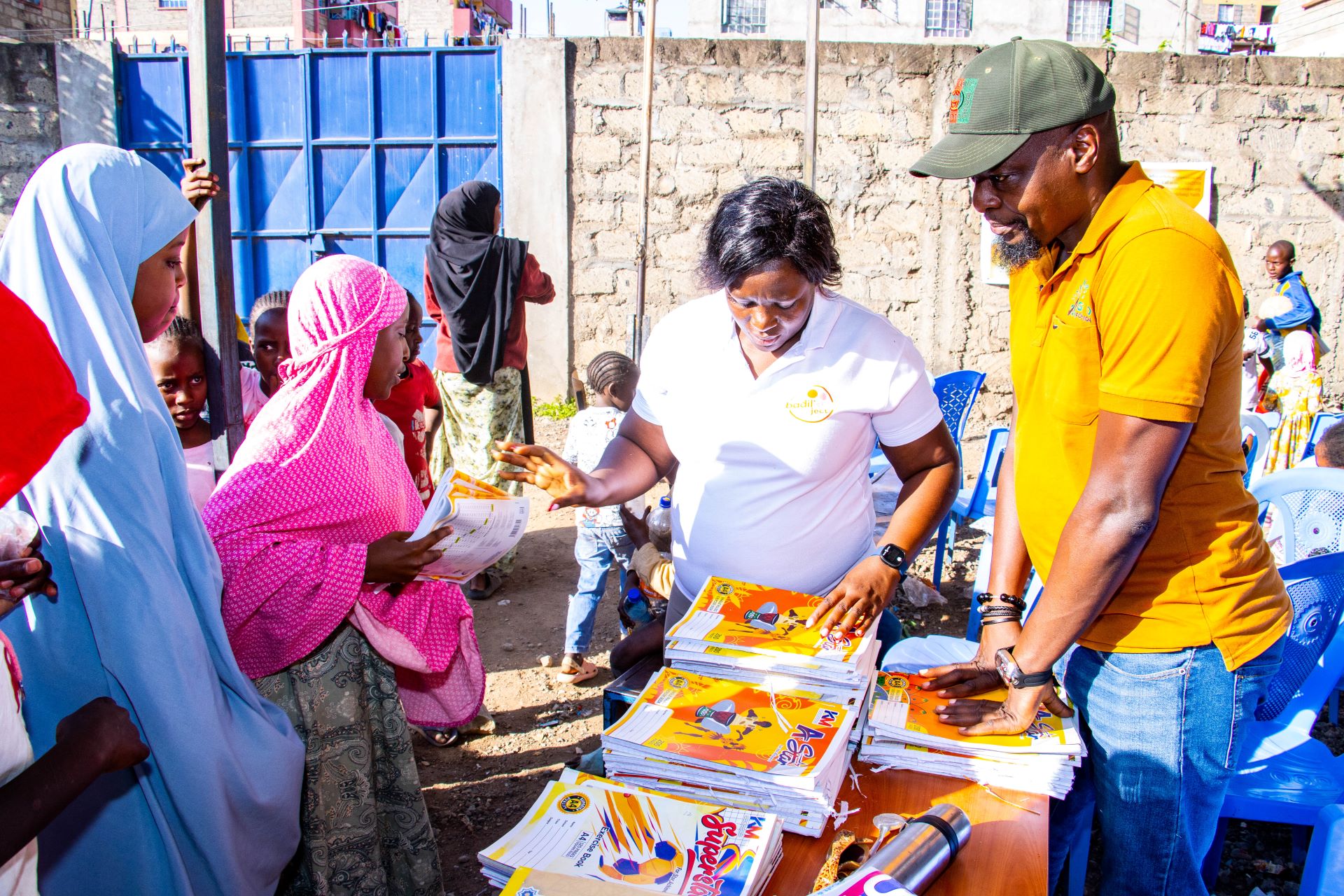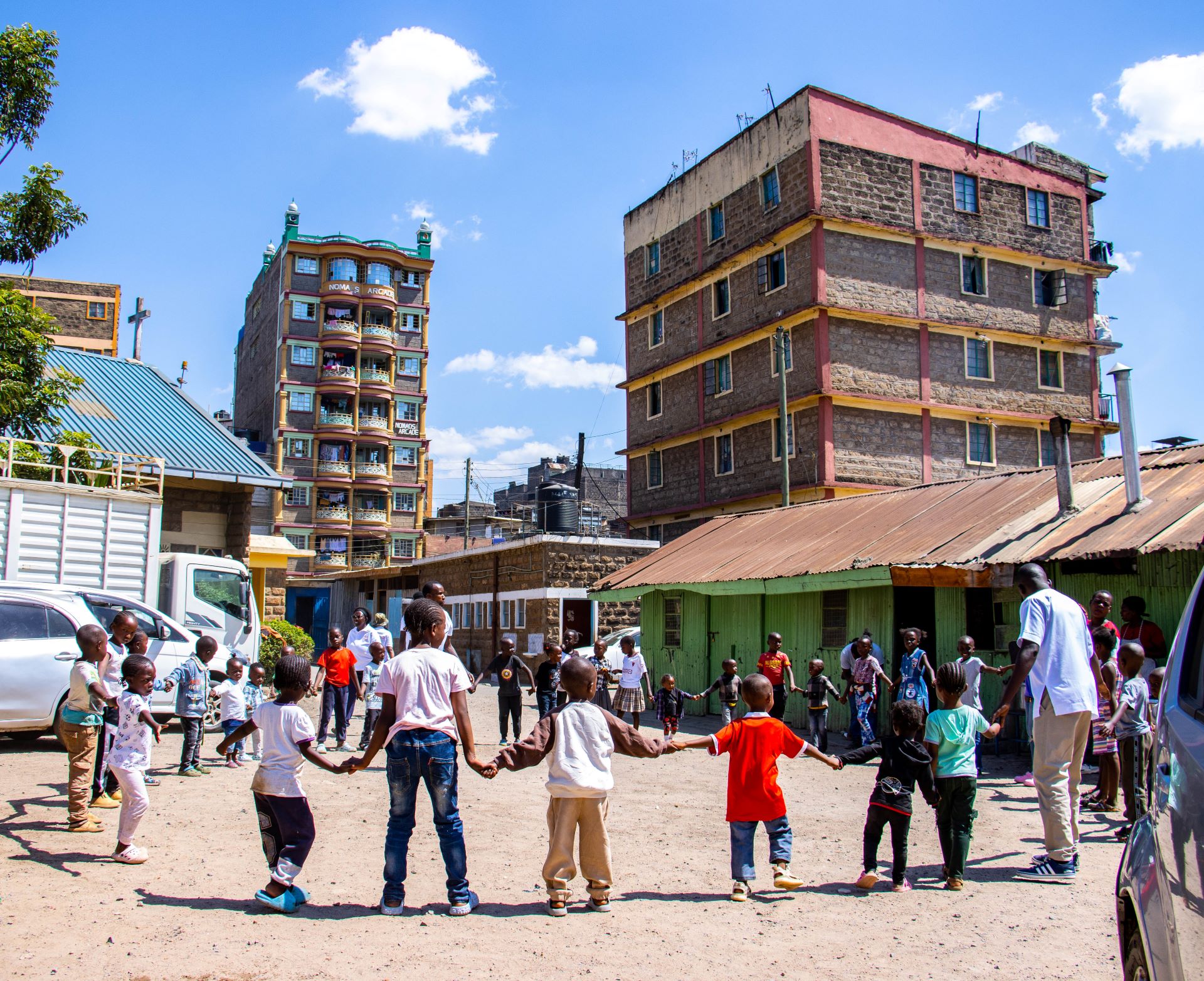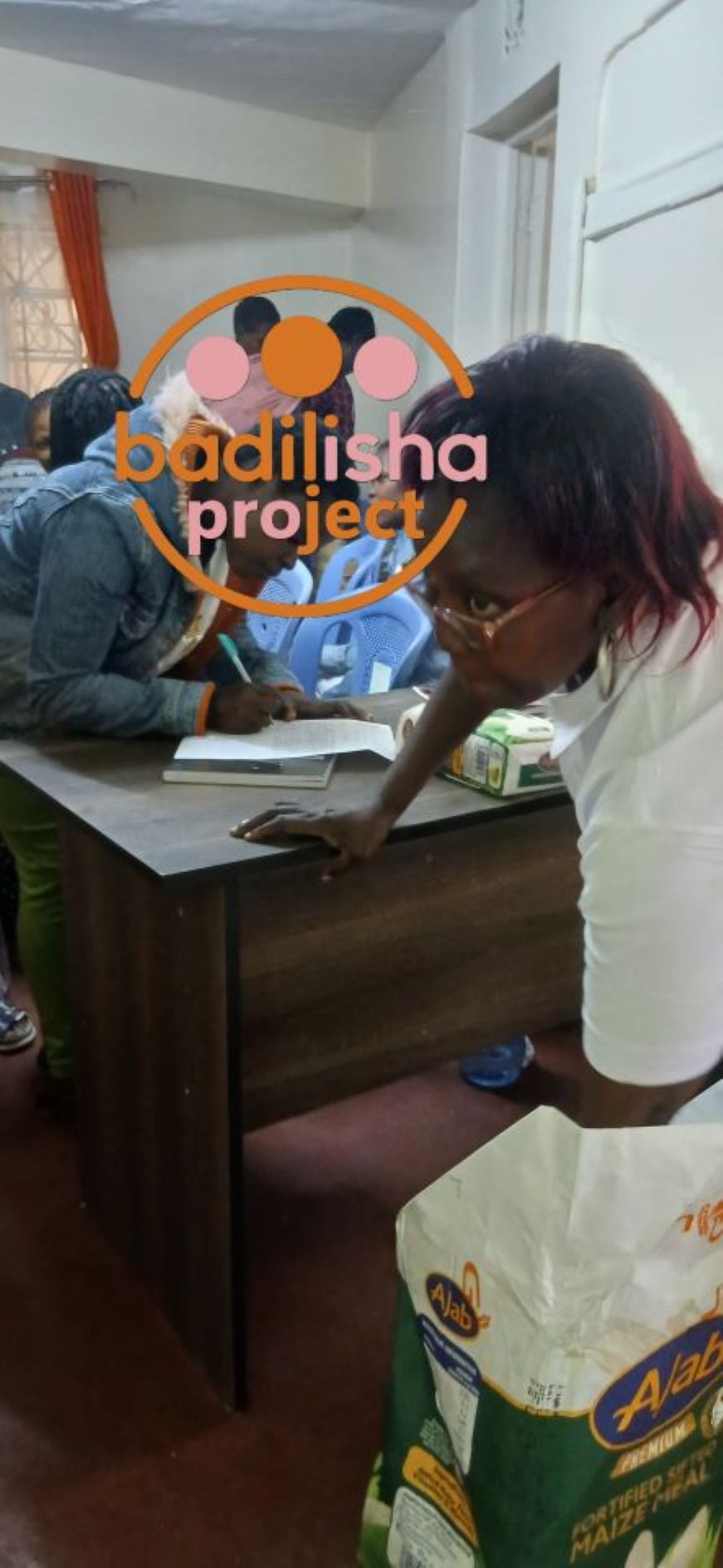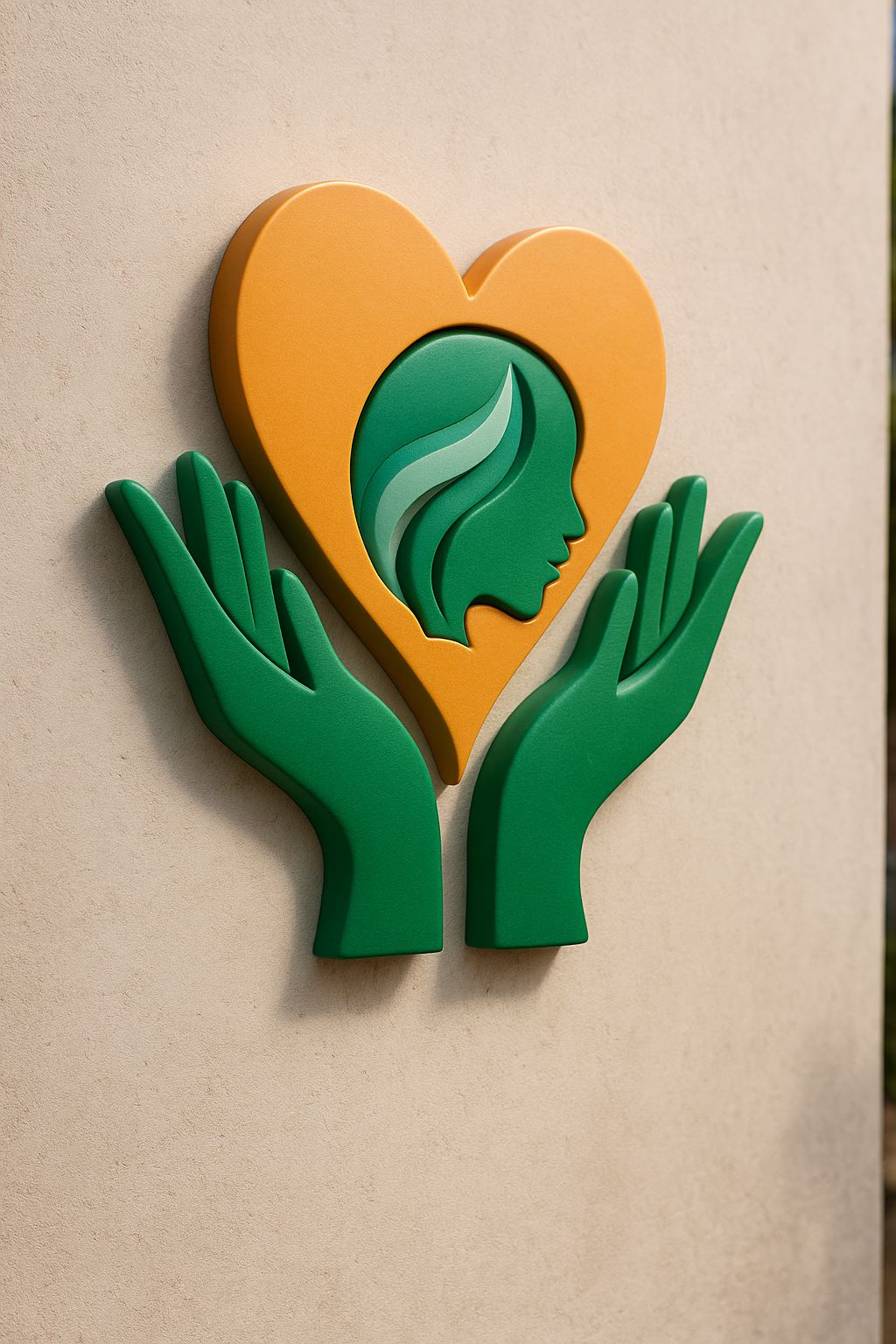
Mentorship Session at the Badilisha Project in Kariobangi – In collaboration with Aguko Foundation
On Saturday, 30th August, the Badilisha Project by At The Heart Of a Woman Kids’ Program in Nairobi, Kariobangi area, brought the community together for a day of learning, empowerment, and joy.
Together with our long-time partners @heels4pads, we continued the vital work of breaking stigma around menstrual health. We created a safe space for the women to share, learn, and find healing in community.

With the generous support of @chezacash, the girls received menstrual hygiene products, helping to fight period poverty and ensure that no girl has to miss out on school because of her period.

When young people learn who they are and how to care for their minds, they grow into stronger, more confident individuals, ready to shape their future with courage and clarity _ Aguko Foundation

@kartasiproductsltd & @kenafricgroupofcompanies brought the gift of books, giving children resources that will nurture their learning and spark their imaginations.
Beyond donations, and through games, mentorship, and shared stories, the children experienced joy, confidence, and a reminder that they are seen and valued.


Empowering Future Entrepreneurs: Badilisha Project Hosts Transformative Training for Girls
On Wednesday 18th June 2025, At the Heart of a Woman (ATHOW) marked a significant milestone in the Badilisha Project by delivering an impactful entrepreneurship training session focused on empowering girls with practical business knowledge and skills.


The session was expertly facilitated by Mercy Kilili Munene, Founder of Shamba Connect, who brought with her a wealth of experience in agricultural innovation and women-led business development. Through interactive discussions and hands-on learning, the girls explored how to turn ideas into sustainable enterprises and how agriculture can be leveraged as a viable and profitable career path.

“When going into business, you should view yourself as a business person — people treat you the way you treat yourself. If you come in feeling at a disadvantage, you are already at a disadvantage.” –Phuti Mahanyele
This training is part of ATHOW’s broader commitment to nurturing leadership, self-reliance, and economic resilience among young women and girls in underserved communities. The energy, curiosity, and determination witnessed during this session reaffirmed our belief that every girl has the potential to lead, innovate, and thrive.
We extend our heartfelt gratitude to Mercy Kilili and Shamba Connect for their generous support and mentorship. Together, we are sowing seeds of change that will bear fruit for generations to come.
Reimagining Aid: Badilisha Team at AidEx Nairobi 2025 — Championing Community-Led Solutions for a Resilient Future

From 11–12 June 2025, our team members CEO Winfred and the Project coordinator, Dorcas Waiirmu had the privilege of representing the Badilisha Project at AidEx Nairobi 2025, held at Safari Park Hotel. Our participation was made possible through the generous support of NTU, who covered our conference attendance.
This year’s AidEx theme,
“Future-Proofing Humanitarian and Development Assistance: Reimagining Partnerships, Innovation, and Locally Led Solutions to Build Resilience across East Africa,”
brought together more than 500 humanitarian and development professionals from across East Africa and the global South.
It was a truly enlightening and powerful gathering, focused on navigating the evolving landscape of foreign aid, particularly against the backdrop of budget cuts and shifting USAID priorities. Across plenaries and networking spaces, one resounding message echoed throughout: the future of development lies in local leadership, inclusive partnerships, and transformative innovation.
A key highlight for us was the keynote address by Fati N’Zi-Hassane, Africa Director at Oxfam International, who offered a powerful reminder that civil society must be central to the development dialogue, not relegated to the margins.
She emphasized the importance of co-creating with communities, dismantling siloed aid structures, and building partnerships that are not only resilient but genuinely equitable. Her words reinforced the very ethos that underpins our work at Badilisha.
The event also featured thought-provoking insights from Clement Cazaubon, Acting Head of the Regional Office at DG ECHO, who reiterated the need to invest in systems that amplify local capabilities while ensuring sustainable impact.

Throughout the two-day convening, Winfred and I engaged with a wide spectrum of actors, from civil society organizations to private sector partners, who are actively shaping the future of aid. These connections were not only affirming but also opened doors to potential collaborations and knowledge exchange that we hope to nurture going forward.
We are sincerely grateful to NTU for facilitating our presence at AidEx 2025. Being part of such a high-level dialogue not only informed our perspective but also reaffirmed our commitment to community-led, context-responsive development. We return to our work with renewed energy and deeper insight into how we can better serve the women and communities we walk alongside.
Winfred (Founder & CEO) representing the Badilisha Project at AidEx Nairobi 2025, held at Safari Park Hotel. The conference convened over 500 global development actors to rethink the future of humanitarian assistance.
Dorcas Wairimu
Project Coordinator, Badilisha Project
Challenges Experienced by Project Beneficiaries and Implemented Solutions
Women and girls shared the challenges they faced while transitioning from commercial sex work
(CSW) and engaging in the transformation process. Each participant encountered difficulties at
various stages of this journey. However, targeted solutions were implemented to support their
transition:
Challenges
- The tough decision to leave the
- commercial sex industry
- Uncertainty about program
- effectiveness
- Difficulty attending scheduled
- sessions on time
- Challenge of finding alternative
Solutions Implemented
- Provided group counseling and one-on-one mentorship
- sessions to help build emotional resilience and confidence.
- Held initial orientation and transparency sessions to explain
- program goals and outcomes, increasing beneficiaries’ trust and
- commitment.
- Introduced flexible session timings and transportation stipends
- to accommodate the participants’ schedules.
- Provided basic vocational training and linked beneficiaries
- with local employment and small-business resources.
Institutional Challenges and Implemented Solutions
Institutional Challenge
- Limited funds to fully
- implement planned activities
- Insufficient staff to cover
- project activities
- Lack of adequate and spacious
- facilities for project activities
Solution Implemented
- Actively sought partnerships with local NGOs and secured in
- kind support from local businesses for resources like
- transportation and training materials.
- Utilized a volunteer program with training sessions to expand
- workforce support, leveraging community members to assist in
- project delivery.
- Partnered with a local community center to access larger
- meeting spaces, reducing reliance on constrained school
- classroom space.
Our comment
Despite these challenges, the project persevered with adaptive strategies and community support.
With continued donor assistance, we aim to address these challenges further and improve project
effectiveness.

Mission
To champion the rights and well-being of women and girls through advocacy, education,
and community empowerment, working towards a society that values and supports
their full potential, breaks barriers, and promotes gender equality.
We strive to build strong partnerships with communities, government, like-minded
organizations, and the private sector to maximize available resources and address the
challenges girls and women face. We view the world through her perspective and work
to dismantle the social and financial barriers that hinder her from reaching her full
potential.
Vision
To empower women and girls to achieve equal access to education and sustainable well
being, fostering a world where every woman and girl has the opportunity to thrive and
lead.

